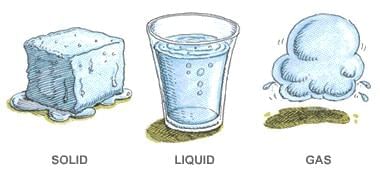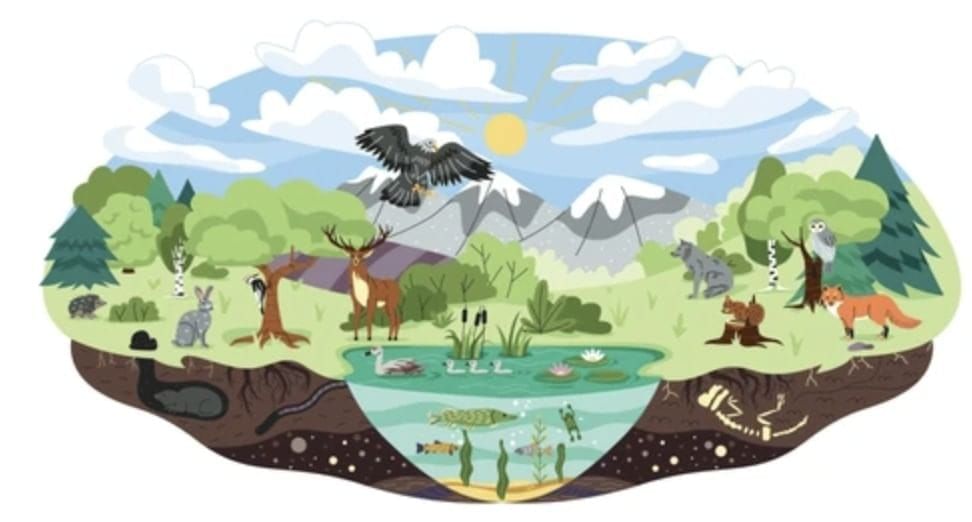Important Questions: The Wonderful World of Science | Science for Class 6 PDF Download
Q1: What is the foundation of science?
a) Curiosity
b) Mathematics
c) Technology
d) Books
Answer: a
Q2: At what temperature does water freeze to become ice?
a) 0°C
b) 100°C
c) 50°C
d) -10°C
Answer: a
Q3: Which step of the scientific method involves making a smart guess?
a) Observe
b) Ask a Question
c) Make a Guess (Hypothesis)
d) Check the Results
Answer: c
Q4: What is the process called when a caterpillar turns into a butterfly?
a) Photosynthesis
b) Metamorphosis
c) Germination
d) Evaporation
Answer: b
Q5: Which material is commonly used to make a ruler?
a) Metal
b) Plastic
c) Fabric
d) Rubber
Answer: b
Q6: What do plants in a forest ecosystem produce that is essential for animals?
a) Water
b) Soil
c) Oxygen
d) Light
Answer: c
Q7: What is the purpose of recycling materials like paper and plastic?
a) To make them heavier
b) To separate and reuse them
c) To burn them
d) To mix them together
Answer: b
Q8: What form of water is steam?
a) Solid
b) Liquid
c) Gas
d) Crystal
Answer: c
Q9: Why do stars shine in the night sky?
a) Due to reactions happening inside them
b) Because they reflect moonlight
c) Because they are hot rocks
d) Due to electricity
Answer: a
Q10: What is measured to know how hot or cold something is?
a) Weight
b) Temperature
c) Volume
d) Length
Answer: b
Q11: Define science and give one example of how it helps us.
Answer: Science is a method of thinking and observing to understand the world and universe. For example, it helps farmers grow better crops by understanding how plants grow.
Q12: What is curiosity, and why is it important in science?
Answer: Curiosity is the eagerness to learn more about our surroundings. It is important in science because it encourages exploration and discovery, driving scientific breakthroughs.
Q13: Name the three forms of water and their states.
Answer: The three forms of water are ice (solid), water (liquid), and steam (gas).

Q14: What are ecosystems, and give one example of an ecosystem?
Answer: Ecosystems are environments with specific plants, animals, and conditions interacting together. An example is a forest, where trees provide homes and produce oxygen for animals.
Q15: List two steps of the scientific method with an example for each.
Answer: 1. Observe: Noticing a plant growing towards light.
2. Ask a Question: Why does the plant grow towards light?
Q16: Explain the scientific method with an example of a problem and how it can be solved using its steps.
Answer: The scientific method is a systematic process to find answers to questions. Its steps are:
- Observe: Notice something interesting, e.g., a pen stops writing.
- Ask a Question: Why did the pen stop writing?
- Make a Guess (Hypothesis): The ink might be finished.
- Test It (Experiment): Check the ink refill by opening the pen.
- Check the Results (Analysis): If the ink is empty, the guess is correct; if not, consider another reason, like dried ink.
- Decide (Conclusion): Confirm the ink is empty or test another hypothesis, e.g., the pen was left uncapped.
This method ensures reliable answers, helping solve problems like why the pen stopped writing by systematically checking possibilities.
Q17: Describe the importance of water and its properties, including how it affects daily life.
Answer: Water is vital for survival, supporting life and daily activities.
- Its properties include existing in three forms: solid (ice) at 0°C, liquid (water), and gas (steam) at 100°C.
- Water’s ability to change states is crucial for the water cycle, bringing rain that sustains ecosystems and agriculture.
- In daily life, water is used for drinking, cooking, cleaning, and farming.
- For example, jumping in puddles or playing in rain shows its fun aspect, while its necessity for plant growth supports food production.
- Understanding water’s properties helps us conserve and use it wisely in activities like irrigation.
Q18: Discuss how science helps us understand ecosystems and food, with examples.
Answer: Science helps us understand ecosystems and food by explaining how living things interact and sustain life.
- In ecosystems, science shows how forests produce oxygen through plants, supporting animals like birds and insects.
- For example, studying a forest ecosystem reveals how trees provide homes and food for animals.
- For food, science explains how seeds grow into plants using water, sunlight, and nutrients, helping farmers improve crop yields, like rice or wheat in India.
- It also explores food components, such as the ingredients in regional dishes, linking their origins to agriculture. This knowledge supports sustainable farming and healthy diets.
|
69 videos|288 docs|27 tests
|
FAQs on Important Questions: The Wonderful World of Science - Science for Class 6
| 1. What are the main branches of science covered in the Wonderful World of Science? |  |
| 2. How does the scientific method contribute to scientific discoveries? |  |
| 3. Why is it important to understand the properties of materials in science? |  |
| 4. What role do experiments play in learning science? |  |
| 5. How can science education benefit students beyond the classroom? |  |


























